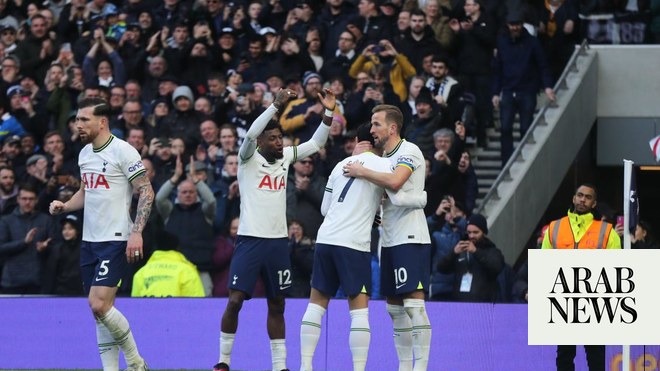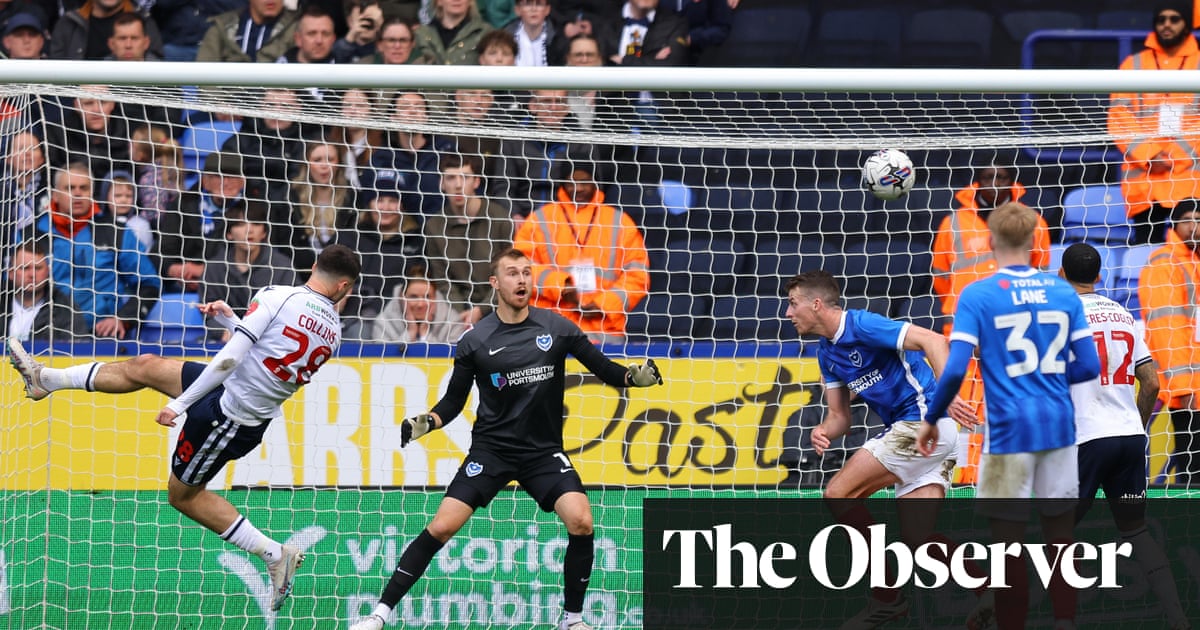
The introduction of semi-automated offside technology (SAOT) is to be delayed, with a system officials regard as crucial to improving the performance of the video assistant referee system not set for use in Premier League matches before the new year.
Professional Game Match Officials Ltd’s chief refereeing officer, Howard Webb, had wanted the technology introduced this autumn and expectations were that it would be implemented after the October international break. Club officials were told by the Premier League at a shareholders’ meeting on Thursday that this would no longer be the case.
PGMOL is expected to undertake further testing of the technology over the autumn, with a reluctance to start using it in the high-pressure Premier League environment until there is absolute confidence it will deliver the improvements promised.
This summer the Guardian revealed that the Premier League and PGMOL had chosen to try a system developed by the company Genius Sports over the products provided by Hawk-Eye, which delivers goalline technology to the top flight. Officials hope that SAOT technology can reduce the time to confirm offside decisions in the event of a VAR intervention by more than 30 seconds.
At an unusually short shareholders’ meeting in central London, clubs were given a presentation by the Premier League’s chief football officer, Tony Scholes, which showed the efficiency of VAR decision-making has improved this season.
Clubs were also reminded of their commitment to improving player behaviour after a spate of yellow cards for unsporting conduct. There was no discussion, though, of the arbitration case brought by Manchester City against the league over its rules regarding associated party transactions (APT), despite speculation that a verdict has been reached in the case. A vote regarding the database through which APT deals are assessed was postponed, however.
City have challenged the APT rules on the grounds that they restrict the club’s ability to be competitive, by limiting sponsorship arrangements with companies who fall under the same umbrella of ownership as the United Arab Emirates state-owned club. APT rules were introduced after the Saudi takeover of Newcastle and were recently tightened after a league proposal was voted through by clubs by the narrowest of margins.
Under the Premier League’s rule X.31 there is no obligation to publish the verdicts of an arbitration panel, which are considered confidential between the two parties. Only if “the award contains decisions on points of law or interpretation” can a skeleton judgment be published, subject to the consent of both parties, and this would not be the case if the panel found in favour of the Premier League’s rules as they stand.
The leading sports lawyer Nick De Marco, who this summer delivered a blow to the league’s profitability and sustainability rules in acting for Leicester in their successful appeal over an alleged breach, said the league should consider changing its rules to make these verdicts public.
“Everyone is now speculating about the alleged outcome of the MCFC v PL Rule X arbitration, and who might have won what,” De Marco wrote on X. “But nobody can know what the result is (if indeed there has been one) or how it was reached, because the PL cling on to absolute secrecy.
“It does their reputation no good at all, at a time the govt is considering the powers of a new independent football regulator, to keep such important matters of football regulation, that effect the whole competition, secret. If there is a decision of the very learned panel, it should now be published.”












